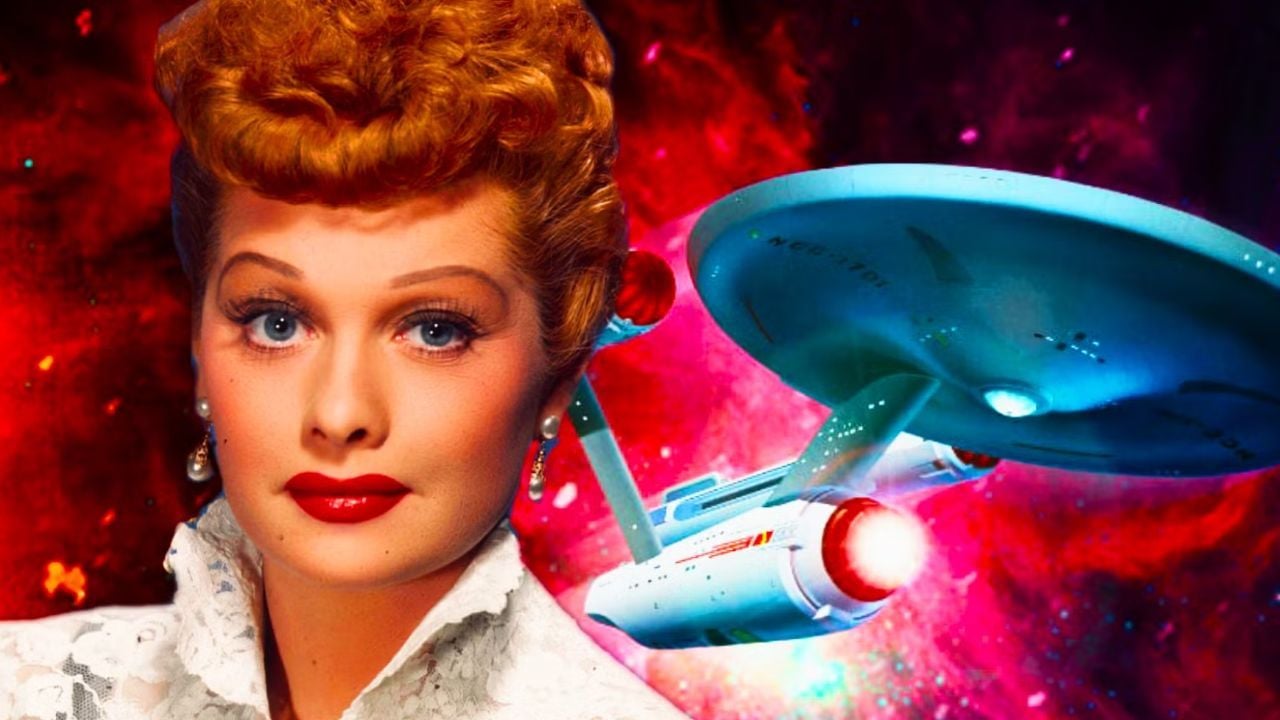The behind-the-scenes of Hollywood can reform many things, but there is something intrinsic to most stories: behind great masterpieces and productions that changed the entertainment industry, there is always the presence of a decisive person – not always obvious – who facilitates the way for a new journey in audiovisual.
This is the story of how one of the greatest science fiction franchises in history was saved by a comedian.
Lucille Ball
, known for starring in the classic sitcom
I Love Lucy
. Besides being an actress, she also worked as a producer, something decisive for many shows that marked American television.
Next to her husband,
Desi Arnaz
, she ran the production company Desilu and, during her tenure as president, stood firm in defense of
Star Trek
, which had numerous issues behind the scenes before becoming a reference in science fiction. The artist believed so much in the series’ potential that she supposedly helped finance a remake of the controversial pilot and even sold part of the company to ensure the project’s continuation, which was anything but cheap.
In the book
The Fifty-Year Mission: The Complete, Uncensored, Unauthorized Oral History of Star Trek: The First 25 Years
, the article by Marc Cushman recounts part of the producer’s journey. “Lucille Ball lost her studio because of Star Trek. She bet on the series, and you can read the memos where her board says: ‘Don’t make this series, it will kill us’. But she believed. She went ahead, and during the second season, she had to sell Desilu to Paramount Pictures,” he wrote.

The issue is that the costs to maintain the series were very high, even for Desilu. Additionally, in the 1960s, many series needed to invest all their capital to gain audience and try to ensure the chance of becoming relevant in the industry.
The writer also states that Lucille had a good sense for business, since her “instincts were right about Star Trek, which would become one of the greatest series of all time.” He adds: “The problem was that her pockets were not deep enough. They were losing 15 thousand dollars per episode, which would amount to something like 500 thousand per episode today.”
After selling to Paramount in 1967, Ball continued her acting career in both film and television, with projects such as “The Honeymooners” and “Here’s Lucy.” The artist began to have more breaks in her work, and her last project, “Life with Lucy,” was not as successful.
With victories and some failures, Ball’s journey ended in April 1989. After appearing in the 61st Oscar ceremony, where she was applauded alongside host Bob Hope, she suffered a heart attack and died at the age of 77.
His legacy, beyond years in front of the cameras with unique performances, extends to the continuation of Star Trek and, consequently, to the current chapters of the television industry.
Read the article at radarsantri.com